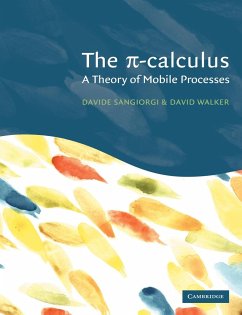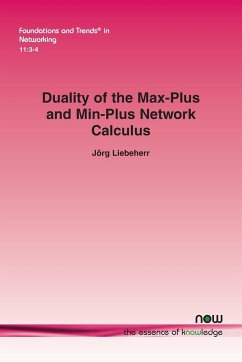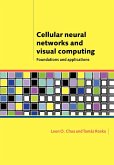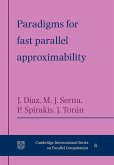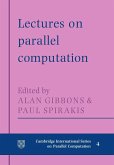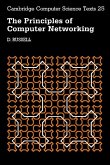Graduate text on the p-calculus, a mathematical model of mobile computing systems.
Mobile systems, whose components communicate and change their structure, now pervade the informational world and the wider world of which it is a part. The science of mobile systems is as yet immature, however. This book presents the pi-calculus, a theory of mobile systems. The pi-calculus provides a conceptual framework for understanding mobility, and mathematical tools for expressing systems and reasoning about their behaviours. The book serves both as a reference for the theory and as an extended demonstration of how to use pi-calculus to describe systems and analyse their properties. It covers the basic theory of pi-calculus, typed pi-calculi, higher-order processes, the relationship between pi-calculus and lambda-calculus, and applications of pi-calculus to object-oriented design and programming. The book is written at the graduate level, assuming no prior acquaintance with the subject, and is intended for computer scientists interested in mobile systems.
Table of content:
Preface; Introduction; Part I. The p-Calculus: 1. Processes; 2. Behavioural equivalence; Part II. Variations of the p-Calculus: 3. Polyadicity and recursion; 4. Behavioural equivalence, continued; 5. Subcalculi; Part III. Typed p-Calculi: 6. Foundations; 7. Subtyping; 8. Advanced type systems; Part IV. Reasoning about Processes Using Types: 9. Groundwork; 10. Behavioural effects of i/o types; 11. Techniques for advanced type systems; Part V. The Higher-Order Paradigm: 12. Higher-order p-calculus; 13. Comparing first-order and higher-order calculi; Part VI. Functions as Processes: 14. The l-calculus; 15. Interpreting l-calculi; 16. Interpreting typed l-calculi; 17. Full abstraction; 18. The local structure of the interpretations; Part VII. Objects and p-Calculus: 19. Semantic definition; 20. Applications; List of notations; Bibliography; Index.
Hinweis: Dieser Artikel kann nur an eine deutsche Lieferadresse ausgeliefert werden.
Mobile systems, whose components communicate and change their structure, now pervade the informational world and the wider world of which it is a part. The science of mobile systems is as yet immature, however. This book presents the pi-calculus, a theory of mobile systems. The pi-calculus provides a conceptual framework for understanding mobility, and mathematical tools for expressing systems and reasoning about their behaviours. The book serves both as a reference for the theory and as an extended demonstration of how to use pi-calculus to describe systems and analyse their properties. It covers the basic theory of pi-calculus, typed pi-calculi, higher-order processes, the relationship between pi-calculus and lambda-calculus, and applications of pi-calculus to object-oriented design and programming. The book is written at the graduate level, assuming no prior acquaintance with the subject, and is intended for computer scientists interested in mobile systems.
Table of content:
Preface; Introduction; Part I. The p-Calculus: 1. Processes; 2. Behavioural equivalence; Part II. Variations of the p-Calculus: 3. Polyadicity and recursion; 4. Behavioural equivalence, continued; 5. Subcalculi; Part III. Typed p-Calculi: 6. Foundations; 7. Subtyping; 8. Advanced type systems; Part IV. Reasoning about Processes Using Types: 9. Groundwork; 10. Behavioural effects of i/o types; 11. Techniques for advanced type systems; Part V. The Higher-Order Paradigm: 12. Higher-order p-calculus; 13. Comparing first-order and higher-order calculi; Part VI. Functions as Processes: 14. The l-calculus; 15. Interpreting l-calculi; 16. Interpreting typed l-calculi; 17. Full abstraction; 18. The local structure of the interpretations; Part VII. Objects and p-Calculus: 19. Semantic definition; 20. Applications; List of notations; Bibliography; Index.
Hinweis: Dieser Artikel kann nur an eine deutsche Lieferadresse ausgeliefert werden.

